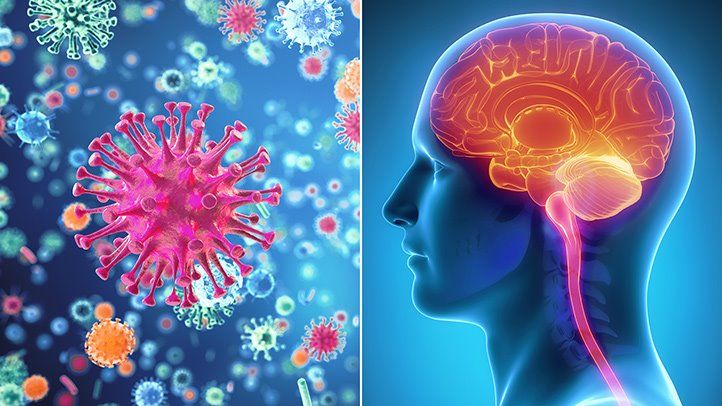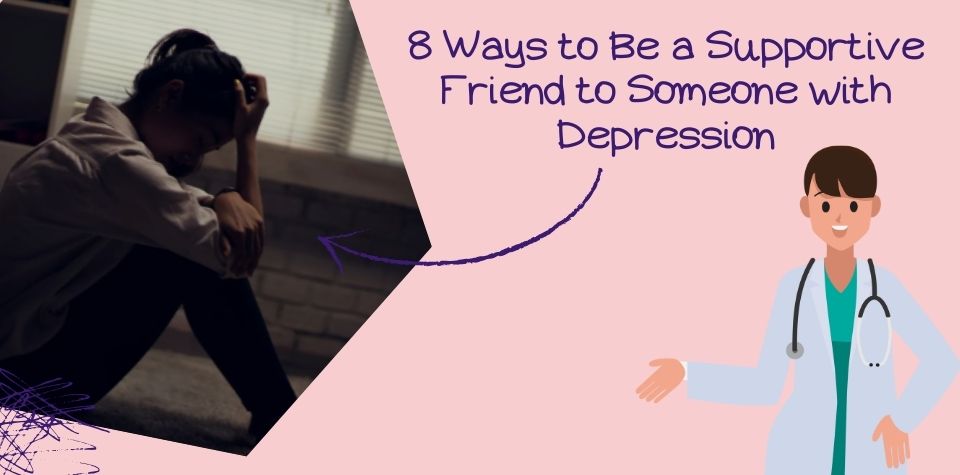The deadly disease is rapidly rising in the United States as per the US CDC alert. The center has noticed a record increase in Meningitis cases. The CDC warned the initial symptoms of Meningitis can be nonspecific, but after a few hours, they may be life-threatening.
The CDC has issued an alert regarding Neisseria meningitidis, a bacteria responsible for causing Meningitis. According to the CDC alert, there have been 422 reported cases of Meningitis among US residents last year, marking the highest number of cases since 2014.
Experts emphasize that Meningitis is a rare yet serious health issue. According to available data, 10 to 15 percent of patients with Meningitis succumb to the disease despite receiving appropriate antibiotic treatment.
Common symptoms of Meningitis may include headache, fever, nausea, stiff neck, vomiting, and sensitivity to light (photophobia). Individuals experiencing these symptoms should seek medical attention from their general practitioner (GP).
US CDC Alert
The US CDC noticed a huge hike in Meningitis cases, and after evaluating the data, they issued an alert. The CDC warned the initial symptoms of Meningitis can be nonspecific, but after a few hours, they may be life-threatening.
The risk factors associated with Meningitis are significant and pose a grave danger. Even individuals who survive the condition are at high risk of experiencing long-term consequences. What’s particularly concerning is that the number of cases of this health condition is steadily increasing day by day. As of March 25th, the CDC has recorded 143 cases since the beginning of the year.
This alarming situation necessitates proactive measures across the entire United States. It’s imperative for the public to take precautions and gain a comprehensive understanding of the disease and its associated risks.
According to the CDC, Meningitis cases have been disproportionately affecting Black individuals, those aged 30 to 60 years old, and people with HIV. Out of the total recorded cases, 94 instances were identified, resulting in 17 fatalities. This marks an 18% fatality rate, which exceeds the highest rate observed between 2017 and 2021, which was 11%.
What is Meningitis?
Meningitis is a kind of infection of the fluid and membranes surrounding the brain and spinal cord, known as meninges. When Neisseria meningitidis infects these membranes, individuals may experience physical symptoms such as fever, headache, and a stiff neck.
According to the Mayo Clinic, while several cases of Meningitis in the US are caused by viral infections, it can also be caused by bacteria, fungi, and parasites.
In terms of risk factors, some individuals may recover from Meningitis without treatment, while others may require emergency antibiotics. However, the condition can also lead to sudden or slow death.
Symptoms of Meningitis
Early signs of Meningitis can mimic flu symptoms, with most symptoms appearing several hours to a few days after infection. Symptoms of Neisseria meningitides infection may include:
- Stiff neck
- Sudden high fever
- Severe headache
- Confusion or difficulty concentrating
- Nausea and vomiting
- Seizures
- Sensitivity to light
- Sleepiness or difficulty waking
- Loss of appetite or thirst
- Skin rashes
In newborns who cannot communicate their symptoms, signs of Meningitis may include:
- Persistent crying
- High fever
- Excessive sleepiness or irritability
- Lethargy or sluggishness
- Difficulty waking for feeds
- Vomiting
- Poor feeding
- Stiffness in the neck or body
Although the US CDC alert does not provide specific data on infants, parents should remain vigilant about their children’s health and seek medical attention if they notice any concerning symptoms.
Causes of Meningitis
Mainly, Meningitis is an infectious disease caused by viruses, fungi and bacteria. As per the data received, most cases of this condition have virus infection as the cause of infection.
Bacterial Infection
Bacterial Meningitis occurs when bacteria enter the bloodstream and travel to the brain and spinal cord, causing infection in the membranes or fluid surrounding them. Additionally, bacteria can directly infect the brain membranes or spinal cord through sources such as ear or sinus infections, skull fractures, or inadequately sterilized surgical procedures.
Several types of bacteria can result in Bacterial Meningitis, including Streptococcus pneumoniae, Neisseria meningitidis, Haemophilus influenzae, and Listeria monocytogenes.
Viral Infection
The US CDC alert suggests that Viral is the main source of Meningitis in the United States. Similar to Bacteria, viruses also infect the membranes by reaching them via the bloodstream. They may also infect directly via the nose and ears. Viruses like herpes simplex virus, HIV virus, West Nile virus, and some others cause Viral Meningitis.
Fungal Infection
People with weak immune systems also experience fungal Meningitis. It often occurs by breathing in fungal spores that may be found in decaying wood, soil, and bird dropping. Cryptococcal Meningitis is a common fungal form of the disease.
It can cause death if not taken necessary measures or treated on time. Fungal Meningitis is a rare condition, but when it occurs, it poses huge complications.
Parasitic Infection
Parasites also cause Meningitis, which is known as eosinophilic Meningitis. Mostly, a parasitic infection occurs when a tapeworm infects the brain of cerebral malaria. Amoeba can also be a cause of parasitic Meningitis. However, it is quite rare that it occurs while swimming in freshwater. Amoeba infection is the most dangerous type of parasitic Meningitis.
According to medical research, Meningitis can occur due to certain other noninfectious causes as well. They may include drug allergies, some kind of chemical reactions, inflammatory diseases, and some types of cancer.
Risk factors of Meningitis
There are numerous risk factors associated with Meningitis, some of which are well-known, while others remain unidentified.
Known risk factors include;
Skipping Vaccinations:
Vaccination is essential for preventing this life-threatening condition. Individuals who forego vaccination or fail to adhere to vaccination schedules are at a heightened risk of Meningitis.
Age:
Viral Meningitis predominantly affects children under 5 years old, while bacterial infections tend to impact individuals under 20 years old. However, according to recent alerts from the US CDC, it is increasingly affecting individuals between 30 to 60 years old.
Pregnancy:
Pregnant women face an elevated risk of Meningitis due to a bacteria called Listeria. This infection can lead to miscarriage, premature delivery, or stillbirth.
Living in Group Settings:
Individuals residing in crowded environments such as dormitories, military bases, schools, and hostels are at a heightened risk of Meningitis. Such settings often facilitate the spread of meningococcal Meningitis.
Weak Immune System:
Those with poor immune systems are at increased risk of developing Meningitis. Individuals with conditions such as AIDS, alcohol use disorder, or drug addiction frequently have weakened immune systems, rendering them more susceptible to various forms of Meningitis.
When to see a doctor
Individuals experiencing any of the above given meningitis symptoms should immediately meet their doctor. Delayed treatment can be life-threatening for people with the condition. On time treatment is a must to be safe or keep your family or loved ones safe.
Visit your doctor if you experience symptoms like Severe Fever, Severe Headache, Vomiting, Confusion or Stiff Neck.
You should also get help from your healthcare provider if you come in contact with someone infected with this condition. People living with the patient must follow some necessary precautions and stay sanitized.
Important Tips
Following some meaningful practices can help people avoid Meningitis. You should also follow these measures to stay healthy and fit.
Wash your hands on a regular basis.
I don’t think it is a thing to describe. Every aware and educated person knows the importance of clean hands. If someone do not cleans their hands with soap on time to time, they just invite the bacteria, viruses and fungus to infect them.
You should always clean your hands after using the washroom, touching anything that may contain bacteria, and especially before eating something.
Practice good hygiene
Maintaining good hygiene is everyone’s duty. People who follow good hygiene have less risk of any kind of infectious disease. You should always wear clean clothes and never share your food, drinks, straws, or eating utensils with others, especially with unhygienic people.
Eat healthy and Vitamin C rich foods
Always eat healthy and Vitamin C rich foods to improve and maintain your immunity. People with weak or poor immune systems are at higher risk of having Meningitis. Fresh fruits and juices can also be good for your health.
Take necessary measures while pregnant
Pregnant ladies should maintain hygiene even in adverse conditions. They should wear clean clothes and avoid visiting places with a risk of infection.
Streptococcal Toxic Shock Syndrome: Complete Information
Meningitis Treatment
There are no specific treatments for unknown infections that cause Meningitis. However, some medications can be used based on the symptoms an individual is experiencing.
For known causes of the conditions professionals may use different kinds of medications to treat it. For virus-caused Meningitis, doctors may recommend some antiviral medications.
Similarly, people with bacterial Meningitis will recommend antibacterial drugs and antifungals for individuals with fungal infections.
Vaccines
Vaccines are also available to reduce the risk of such infections. You may take any of the following vaccines (only after getting approval from your GP) to avoid Meningitis.
- Haemophilus influenzae type b vaccine (Hib)
- Pneumococcal conjugate vaccine (PCV15 or PCV20)
- Pneumococcal polysaccharide vaccine (PPSV23)
- Meningococcal conjugate vaccine (MenACWY)
- Serogroup B meningococcal vaccine (MenB)
Also read: New Medical Emergency: Dengue Symptoms and Treatments
Note: The information available here is based on different Google sources. Please do not consider it a substitute for professional advice. Symptoms and treatments can vary based on individual conditions.












2 thoughts on “US CDC Alert: Check Risk Factors and Treatment of Meningitis”